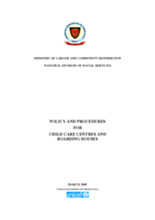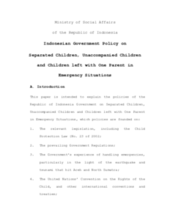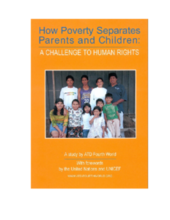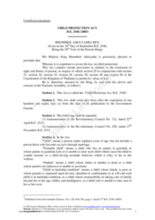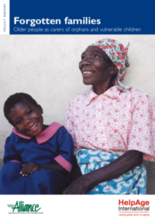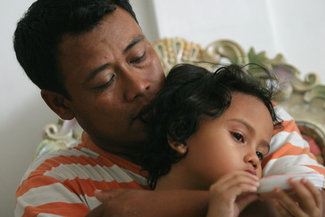

Displaying 681 - 690 of 714
This presentation includes the objectives and agenda from an Alternative Care Workshop held in Bangkok in November 2005 to present findings from a study on alternative care choices for children affected by the Tsunami in South East Asia and to share experiences and best practices related to children's care.
Reports on the status of children living in residential facilities in Nepal. Includes detailed survey instruments in appendicies.
Briefing note advocating cash transfers in disaster relief, with a particular focus on operations in Sri Lanka and Indonesia following the tsunami in 2004.
This document is a guideline to facilitate good policy and practice within institutional care settings for children in Timor. It addresses regulations, registration, standards of care, placement and monitoring.
Indonesian policy paper on the practice principles for separated and unaccompanied children in an emergency, including guidance on short and long-term care arrangements, tracing, and family reunification
The study provides an overview of current policies and programs that address the educational needs of street children as well as an analysis of their needs. It identifies best practices, gaps, and challenges in education and makes recommendations for government policy and programs.
An executive summary of lessons learned on preventing family separation in poverty stricken communities. Brief case studies from Guatemala, Haiti, Philippines, United States and Burkina Faso.
A publication by International AIDS Alliance and HelpAge International provides an overview of the issues identified by older people and orphans and vulnerable children themselves; examples of community-based programs that are improving the lives of older people and orphans and vulnerable children; recommendations that will help to prioritize orphans and their carers within HIV/AIDS and wider development policies, programs and research.
Outlines a wide range of interventions designed to protect street children, ranging from prevention and reunification to vocational training, economic support, and improved rural infrastracture.



